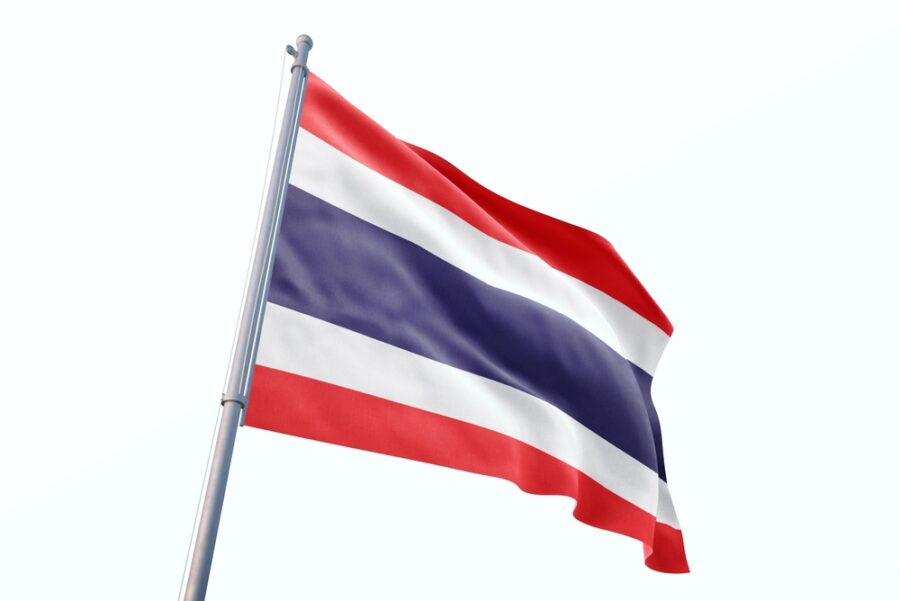Thailand introduces gaming law to regulate ‘hidden’ gambling

Thailand’s Digital Economy Promotion Agency has advanced plans for the country’s first dedicated gaming law, which aims to regulate games that blur the line between play and gambling.
The legislation, which took a year to draft, will introduce a central framework to oversee games with “hidden gambling” mechanics such as loot boxes, prize draws, or reward-exchange systems.
At present, no single agency has the authority to monitor or suspend such games. The proposed law would empower the Cyber Crime Investigation Bureau to block unregistered titles and audit operators for fairness and transparency.
According to the agency’s President, Assistant Professor Nuttapon Nimmanphatcharin, Digital Economy and Society Minister Chaichanok Chidchob prioritized the draft Promotion of the Game Industry Act, which will now be considered by the cabinet.
The bill has already been approved by the Comptroller General’s revolving-fund committee and secured budget backing from the National Broadcasting and Telecommunications Commission.
Nimmanphatcharin said the measure sought not to restrict competition but to “regulate the game market” for sustainability.
In addition, three new bodies would be established under the law: a registration committee, a regulatory and inspection committee led by the cyber and provincial police, and a game-industry promotion committee.
Upon finalization, Thailand would become the first member of the Association of Southeast Asian Nations with dedicated gaming legislation and the fourth in Asia after China, Japan, and South Korea.
This comes after Thailand ruled out igaming from its entertainment complex bill in June.
Abi Bray brings strong researching skills to the forefront of all of her writing, whether it’s the newest slots, industry trends or the ever changing legislation across the U.S, Asia and Australia, she maintains a keen eye for detail and a passion for reporting.
Verticals:
Sectors:
Topics:
Dig Deeper
The Backstory
Regulators pivot from laissez-faire to active policing
The policy environment around online wagering has shifted from watching at arm’s length to shaping markets in real time. In Southeast Asia, Thailand is moving to become the first Association of Southeast Asian Nations member with a dedicated gaming statute aimed at “hidden gambling” mechanics. The draft Promotion of the Game Industry Act would give the Cyber Crime Investigation Bureau power to block unregistered titles and audit operators, while standing up three new committees to register, inspect and promote the sector. The plan, advanced by the Digital Economy Promotion Agency and backed by budget approvals, targets loot boxes, prize draws and reward exchanges in games that blur play and gambling. As detailed in Thailand introduces gaming law to regulate ‘hidden’ gambling, the measure is framed as market “regulation” rather than restriction, but its enforcement tools are explicit.
Japan is tightening the perimeter from another angle. A revised law that took effect Sept. 25 bans illegal online casinos from launching or advertising on social media or YouTube, and urges national and local governments to step up public warnings about gambling harm. Authorities are also going after celebrity endorsements after several high-profile cases. The only legal options remain horse racing, sports betting and pachinko. The National Police Agency estimates millions of residents gambled online, and industry leaders say trillions of yen flow to offshore sites. The crackdown’s contours are laid out in Japan targets online casinos and celebrity endorsements via new law.
These moves map a regional trend: regulators are asserting more control over products, marketing and player protections, and are willing to block access or impose penalties to make rules stick.
Two contrasting blueprints: strict bans vs. licensed markets
Governments are splitting between prohibition and supervised legalization. India has chosen the harder stop. Parliament passed the Promotion and Regulation of Online Gaming Bill to ban most igaming platforms, including card games, poker and fantasy sports, with penalties up to five years in prison for those who offer or promote them. The law carved out exceptions for e-sports and educational games, positioning them as part of the digital economy while slamming the door on products blamed for addiction and financial harm. The push followed findings that nearly 450 million people lost a combined $2.3 billion a year, and that illegal sites drew more than five billion visits in a 12-month span. That decisive turn is captured in India law bans nearly all igaming platforms.
Canada’s Alberta is taking the opposite tack, mirroring Ontario’s playbook to pull a gray market into a regulated ring. Bill 48 would create a new Crown corporation to oversee online gaming alongside the provincial regulator and open a licensing path for offshore brands operating in the province. The government argues that a legal market with exclusion tools will keep revenue at home and reduce harm, citing Ontario’s second-year revenue of CA$2.2 billion. Lawmakers are explicit that gambling is not “safe,” but say it can be made safer with rules that draw players away from unlicensed sites. The plan is outlined in Alberta introduces bill to regulate igaming.
For operators, the divergence is stark. In India, user acquisition funnels have been severed for most real-money products. In Alberta, the lane could open to license incumbents of the gray market, lowering legal risks and marketing friction while adding responsible gaming obligations and fees.
Technology becomes a regulator’s edge
Where markets remain open, oversight is getting smarter. The Philippine Amusement and Gaming Corp. is studying artificial intelligence to improve know-your-customer checks and to flag risky betting behavior in real time. Chairman Alejandro Tengco told lawmakers that AI-powered e-KYC can detect tampered IDs and that pattern-recognition tools can trigger automatic cooling-off periods when accounts show sudden betting spikes or longer sessions. The aim is to harden on-ramps while enabling earlier intervention with at-risk players. The broader enforcement push follows a central bank order that forced e-wallets to delink from gambling sites, which PAGCOR says halved igaming transactions. The initiative is detailed in PAGCOR announces AI study to regulate igaming.
Thailand’s plan would likewise formalize oversight with new committees and clear audit authority. The emerging model mixes technological tools and institutional capacity, signaling that compliance will be measured not just by licensing status but by the integrity of onboarding, game design and ongoing monitoring.
Courts and antiquated laws collide with modern betting
In the United States, legal uncertainty is coming from an unlikely source: an 18th-century statute. A Delaware LLC called Gambling Recovery is suing major sportsbooks in Washington, D.C., invoking the Statute of Anne, a law enacted under Queen Anne that lets gamblers recover losses above a set threshold. The group argues the law still applies to modern sports betting and estimates a recovery could net the District millions. D.C. lawmakers are weighing whether to amend the law to block the suits, setting up a clash between potential fiscal windfalls and industry stability. The episode shows how legacy legal frameworks can be redeployed in today’s disputes. The contours are described in DC lawmakers revisit 300-year-old gambling law.
For operators, the D.C. case underlines a wider risk: litigation premised on consumer protection statutes that predate digital wagering. Even if such cases fail, they can catalyze legislative fixes that narrow defenses, tighten disclosures or reshape revenue-sharing models with governments.
Why these threads matter now
Across markets, the stakes are converging around three issues. First, governments want to stem outflows to offshore sites and reclaim tax revenue. Alberta’s licensing push and Japan’s ad bans serve that goal from opposite ends. Second, regulators are sharpening responsible gaming expectations, from Thailand’s loot box scrutiny to PAGCOR’s AI pilot. Those standards will influence product design, marketing and data governance. Third, political tolerance for gray areas is shrinking. India’s sweeping ban, D.C.’s flirtation with a colonial-era remedy and Japan’s celebrity crackdown reflect a willingness to act quickly when harm narratives gain traction.
The throughline for the current debate: clarity is replacing ambiguity. Operators seeking growth must adapt to explicit rules on game mechanics, marketing channels and player protection tech. Investors should expect widening performance dispersion, as businesses aligned with local policy preferences gain approvals and user trust, while those out of step face blocks, bans or costly pivots. Consumers will see more tools to manage play and fewer avenues to access illegal sites, though supply will not vanish.
The policy arc suggests more markets will pick a lane. Some will emulate Ontario and Alberta, licensing known brands under strict conditions. Others will follow India’s blunt approach, especially where illegal traffic is large and social costs are salient. In both cases, the compliance bar is rising, and the cost of getting it wrong is going up.








